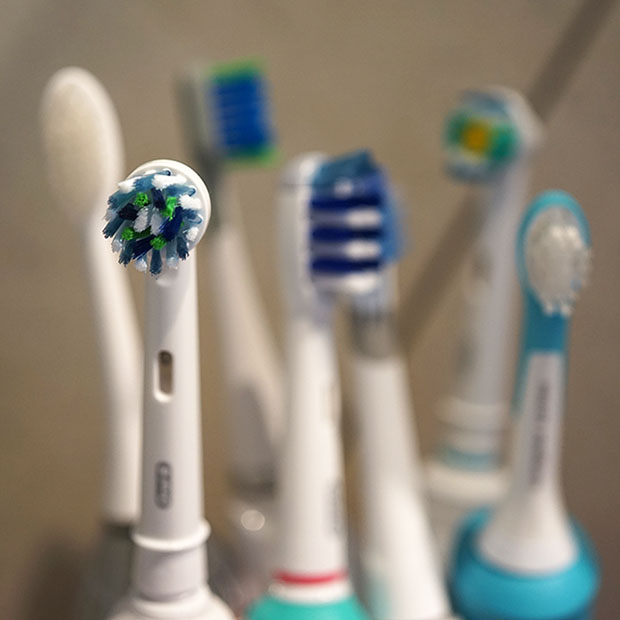What Kind of Toothbrush Is Right for You?

The toothbrush has changed a lot over the last century, and we consider ourselves very lucky that we don’t have to use animal hair as bristles.
However, there are now so many different toothbrush options to choose from that it can be a little intimidating trying to find the perfect one.
Bristle Firmness
Conventional wisdom would suggest that the harder you scrub, the cleaner you get. That might be true with household chores, but we need to be a little more gentle on our teeth and gums. Brushing too hard can actually scrape away enamel and damage gum tissue — increasing your risk of gum recession, which can be permanent. This is why it’s typically better to use a toothbrush with soft bristles.
Electric or Manual Toothbrush?
When electric toothbrushes first hit the scene, there wasn’t much difference in their effectiveness compared to that of manual toothbrushes. The technology has come a long way since then. Modern electric toothbrushes actually can do a better job of cleaning the plaque out of hard-to-reach spots.
A good electric toothbrush will reduce plaque levels by up to 21 percent more than a manual toothbrush, as well as reducing the risk of gingivitis by 11 percent. With an electric toothbrush, you’ll also have an easier time brushing for the full two minutes and you’ll be less likely to brush too hard.
Sonic or Oscillating?
Even if you decide you want an electric toothbrush, there are still a lot of options to choose from, but don’t worry too much. Oscillating brushes (the ones with spinning tops) and sonic brushes (the ones that vibrate side to side) are both great ways to get a cleaner smile. And you can always ask us for a recommendation at your next appointment!
Toothbrush Storage
Having the world’s best toothbrush won’t do you much good if you don’t store it the right way, because an improperly stored toothbrush is a breeding ground for all the bacteria you just scrubbed off your teeth. Make sure to store your toothbrush upright somewhere with enough air flow that it can fully dry between uses — preferably far away from the toilet.
In addition to proper storage, it’s important to replace your toothbrush (or toothbrush head, if you have an electric one) every few months. A dirty, frayed toothbrush is nowhere near as effective as a fresh, new one.
Here’s a nifty way to store your toothbrush if you’re looking for ideas:
Bring Us Your Toothbrush Questions
We want all of our patients to have the best tools for the job of keeping their teeth healthy and clean, but don’t forget that your best resource for good dental health is your dentist! We look forward to seeing you twice a year!
